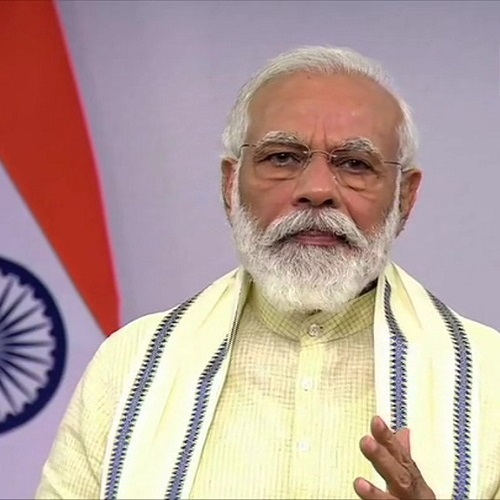New Delhi [India], March 5 (ANI): Prime Minister Narendra Modi on Friday laid emphasis on working hard to make manufacturing in India globally competitive and said that the government’s thinking is “minimum government, maximum governance”.
Addressing a webinar on the Production Linked Incentives scheme through video conferencing, the Prime Minister said successful efforts have been undertaken to encourage the “Make in India” initiative in the last 6-7 years.
“Manufacturing transforms every aspect of the economy, creating an ecosystem. Increasing manufacturing capabilities increases employment generation. We have examples from all over the world where countries have accelerated the development of the country by increasing their manufacturing capacities,” the Prime Minister said.
“India wants to work with the same approach. Thus, our government has brought one reform after another in this sector. Our policy and strategy are clear in every way. Our thinking is – ‘minimum government, maximum governance’. And we expect ‘zero effect, zero defect’,” he added.
Speaking further, the Prime Minister said: “We need to work hard to make manufacturing in India globally competitive. Our production costs, quality and efficiency of products should leave a mark in the global market and we must work together to make this possible. Our products must be user-friendly, most modern, affordable and sustainable.”
We believe that government interference in everything creates more problems rather than solutions. That is why we are emphasising on self-regulation, self-attesting, self-certification, he said.
Asserting on the need for effective engagement of all stakeholders of development, PM Modi said budget and country’s policy-making should not just remain a government process.
“Union Budget and country’s policy-making shouldn’t just be restricted to a government process. Every stakeholder associated with the development of the country should have an effective engagement in it,” he said.
“We need to take big steps and increase our speed and scale (in manufacturing). After COVID’s experience of the last one year, I’m convinced that it’s India’s responsibility and not just an opportunity to move fast in this direction. Manufacturing transforms every segment of the economy,” he said.
“If Production Linked Incentives is for a sector, it will benefit the entire ecosystem associated with that sector. From Production Linked Incentives in auto and pharma, there will be very less foreign dependence related to auto parts, medical equipment and raw materials of medicines,” the Prime Minister said.
The Prime Minister said the energy sector will be modernised in the country with the help of advanced cell batteries, solar PV modules and steel. Similarly, our Production Linked Incentives will benefit the entire agriculture sector from the textile and food processing sector, he said.
“This year, we are trying to reduce over 6,000 compliances at the state and Central level. Your suggestions and advice are priceless in this relation. With technology, we must reduce such compliances,” he said.
“In the past, industrial incentives were in the form of an open-ended input-based subsidy. Now, it has been transformed to a targeted, performance-based competitive process,” he added. (ANI)










